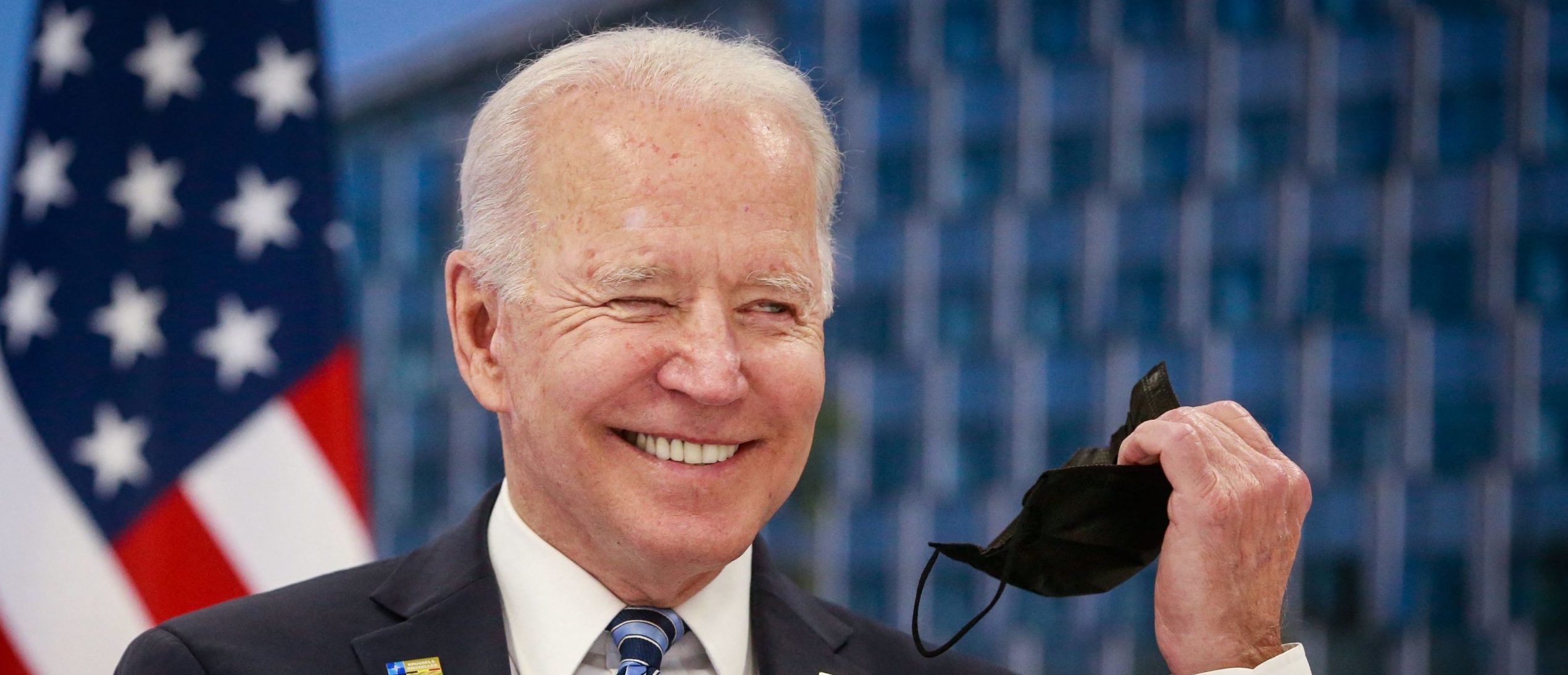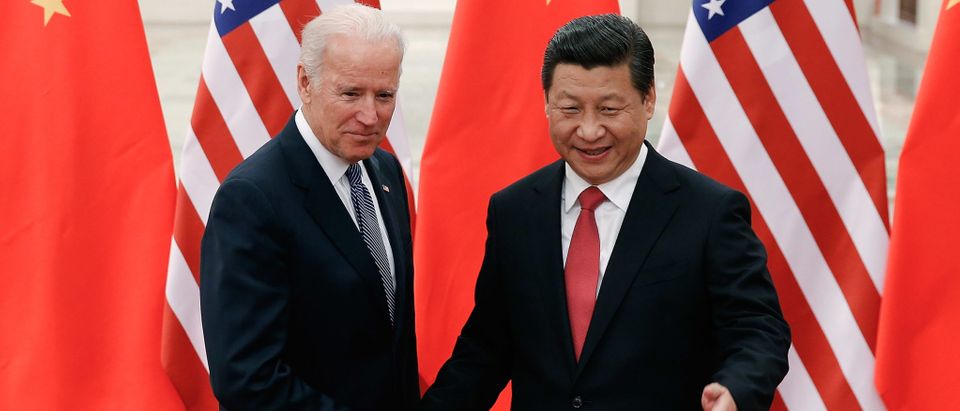President Joe Biden and Chinese President Xi Jinping have reached an agreement “in principle” to hold a virtual summit before the end of the year, Axios reported Wednesday.
Biden and Xi held a phone call earlier in September, where both leaders agreed to uphold the “Taiwan agreement” in which China maintains non-diplomatic relations with Taiwan and the U.S. upholds that there is only one sovereign Chinese government.
Tensions between the U.S. and Taiwan and China have escalated since Biden’s haphazard withdrawal of U.S. troops from Afghanistan, which the Chinese government capitalized on as a major propaganda victory. China cited the withdrawal to gloat to Taiwan in early September that it cannot count on U.S. support if China were to invade.

US President Joe Biden takes off his face mask he meets with NATO Secretary General during a NATO summit at the North Atlantic Treaty Organization (NATO) headquarters in Brussels on June 14, 2021. – The 30-nation alliance hopes to reaffirm its unity and discuss increasingly tense relations with China and Russia, as the organization pulls its troops out after 18 years in Afghanistan. (STEPHANIE LECOCQ/POOL/AFP via Getty Images)
Neither the U.S. nor China have announced any potential dates for the virtual summit. National security adviser Jake Sullivan is scheduled to meet with top Chinese diplomat Yang Jiechi this week, however. It will be the second in-person meeting between senior Biden administration officials and their Chinese counterparts.
The Chinese military deployed 52 warplanes into Taiwan’s Air Defense Identification Zone (ADIZ) Monday, an unprecedented number since Taiwan began reporting such information in 2020. (RELATED: Taiwan ‘On Alert’ After Record Number Of Chinese Planes Enter Airspace, Warns Of ‘Catastrophic’ Consequences If It’s Democracy Falls)
The aircraft included 34 J-16 fighter jets, two Su-30 fighter jets, 12 nuclear-capable H-6 bombers, two Y-8 anti-submarine warplanes and two KJ-500 airborne control planes belonging to China’s People’s Liberation Army (PLA) Air Force, according to a statement from Taiwan’s defense ministry.
The White House did not immediately respond to a request to confirm Biden and Xi’s agreement to hold the summit.
White House press secretary Jen Psaki reaffirmed U.S. support for Taiwan on Monday, however.
“Our commitment to Taiwan is rock solid and contributes to the maintenance of peace and stability across the Taiwan Strait and within the region,” she told reporters during Monday’s press briefing. “We have been clear privately and publicly about our concern about [China’s] pressure and coercion toward Taiwan, and we will continue to watch the situation very closely.”
“We urge Beijing to cease its military, diplomatic, and economic pressure and coercion against Taiwan. And we have an abiding interest in peace and stability across the Taiwan Strait. That’s why we’ll continue to assist Taiwan in maintaining a sufficient self-defense capability,” she added.


